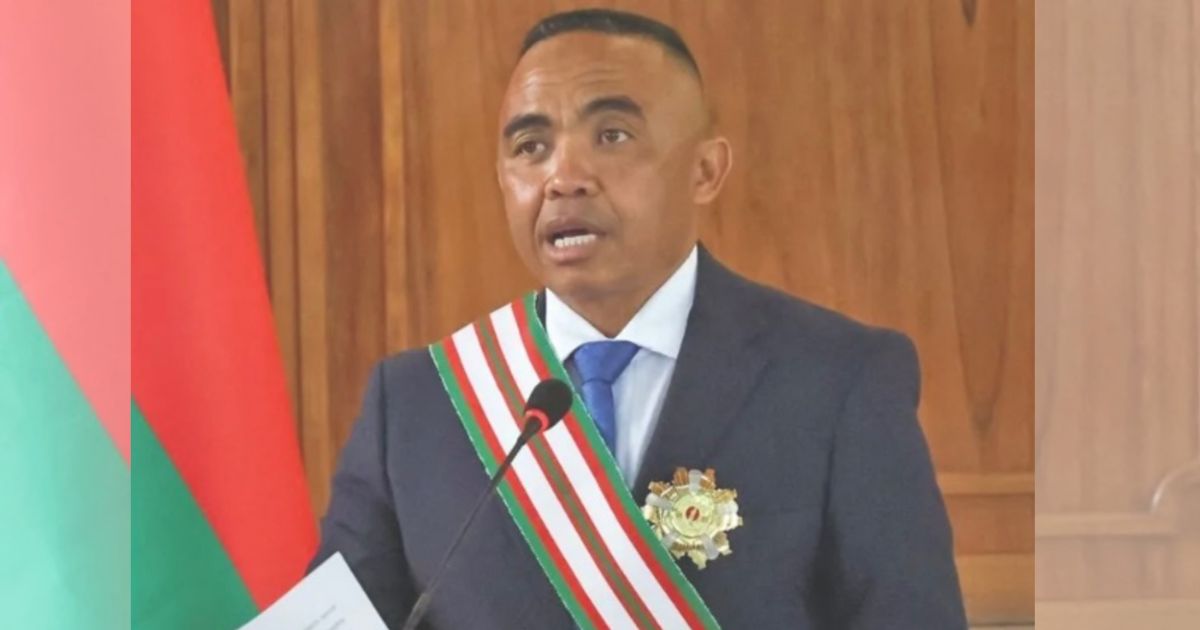A military colonel who grabbed power in a coup seized Madagascar’s top leadership post 17th October during a breathtakingly swift takeover that deposed the president and had him running from the country into exile.
Col. Michael Randrianirina, leader of an elite military unit, was sworn in as the new president during a ceremony in the main chamber of the country’s High Constitutional Court.
He became president only three days after he declared that the military was assuming power in the populous Indian Ocean island of about 30 million inhabitants off Africa’s east coast.
The United Nations has denounced the military coup as an unconstitutional change of government.
The military coup — which followed three weeks of anti-government demonstrations by largely young people — has been denounced by the United Nations and resulted in Madagascar being suspended from the African Union.
President Andry Rajoelina’s location is not known since he departed the country citing that his life was under threat after the uprising by Randrianirina loyalist soldiers. Rajoelina was impeached in parliament during a vote in his absence Tuesday just before the colonel declared that the military was assuming power.
Randrianirina, who rose to prominence from obscurity to command the rebellion by his CAPSAT soldier unit, was temporarily jailed two years ago for a failed mutiny. He claimed he spent nearly all of the three months he was held in late 2023 and early 2024 in a military hospital.
Madagascar also boasts significant levels of poverty, which hit approximately 75% of the population, based on the World Bank. There is also a violent history of political unrest in the former French colony since its independence in 1960, including a number of coups and coup attempts.
Rajoelina himself took office as a transitional president in 2009 following a coup supported by the army.
Randrianirina stated that Madagascar would be governed by a military council headed by him as president for 18 months to two years before new elections, which could leave the young generation who caused the revolt against Rajoelina waiting for a long time before they get to elect their next leader.
The riots, which started last month, have followed other Gen Z-inspired riots in Nepal, Sri Lanka and beyond. Young Madagascans initially went onto the streets last month to protest frequent water and electricity shortages, but have brought up other grievances, such as the price of living, opportunities and claimed corruption and nepotism from the elite.
Randrianirina rode the momentum over the past weekend by reversing allegiance against Rajoelina and joining anti-government demonstrations that demanded the president and government ministers resign. There was a scuffle between his troops and the remnants of gendarmerie security forces who remained loyal to Rajoelina, in which one CAPSAT soldier died, the colonel reported.
But there has not been any significant violence in the streets and Randrianirina’s soldiers have been welcomed and their coup cheered by Madagascans.
Randrianirina told The Associated Press in an interview on Wednesday that the coup was a step to “take responsibility as citizens and patriots.”
From today onwards, we will bring back the country to its former greatness, combat insecurity, and try gradually to resolve the social issues that Malagasy citizens face,” the colonel declared in an interview at his unit’s barracks.
The U.N. Secretary-General, António Guterres, on Thursday denounced the unconstitutional takeover of government in Madagascar and urged “for the return to constitutional order and the rule of law,” his spokesman, Stéphane Dujarric, reported. Little major response to the coup by other nations, including Madagascar’s former colonial power France, has been seen.




